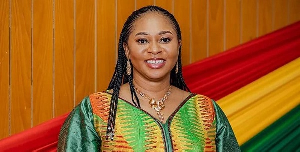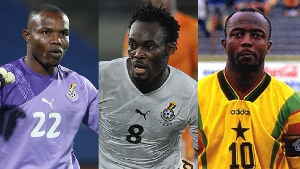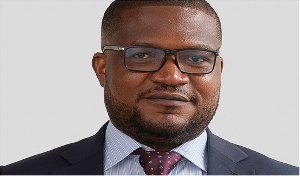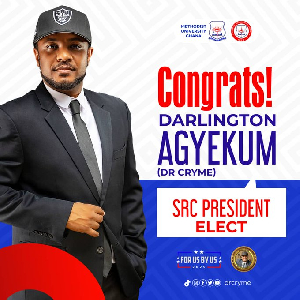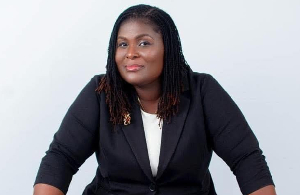There was once a time when the tendency of African heads of state to hang on to power was widespread. The governance systems that we inherited at independence from our colonial masters (mainly British and French who introduced presidential term limits only in 2008) were quickly discarded in favour of a system that sustained the ruling party in power for an indefinite time. Every independent Africa country practiced this with the leaders who led the country to independence manoeuvring to stay on forever.
In Ghana’s case, it was Nkrumah. The British cabinet system we adopted on independence did not specify term limits. It was a system that the British had practiced over centuries and matured it to a situation where no leader saw himself in power forever – or even for a long time. How they thought the same system could work for us is difficult to understand. Perhaps that was the only thing they knew to teach us.
It took Nkrumah’s government only three years to discard the system inherited on independence. In 1960, Ghana became a republic with a President. Term limits were not imposed but the practice of regular elections were maintained. It turned out to be a sham. Nkrumah won all the elections with more than convincing results. He found reasons to ban all other parties and made the country a one party state. Eventually, there would be no opposition to him even within that one party. He became life president of the party and life president of the country. The history books don’t tell us if this idea of life presidency came from Nkrumah’s head or was mooted by his sycophantic aids and supporters. This distinction is pertinent because not every bad thing that is attributed to Nkrumah was actually thought up by him. But he can be blamed for not putting an end to all the praise singing, hero worshiping and idolisation of his person. He was so dominant in the party that he could have stopped them. It seems he rather revelled in them. In so doing he set a bad precedence for other heads of state in Africa as far as hanging on to power was concerned.
The NLC regime that came after him promised a short reign and observed it. There were some rumours that some members of the council, having tasted the sweetness of power, wanted to extend their stay. But the NLC held good on its promise and handed over to a civilian government after 43 months. Busia was overthrown after 27 months in power so we cannot say if he would have manoeuvred to stay on longer than the two terms that the second republican constitution provided when we went back to the governance system we had inherited on independence. Busia was a liberal but you never know – he was still an African who defied court decisions!
The NRC regime led by Acheampong promised to correct the ills for which they overthrew Busia and, presumably, hand over power to civilians. They were forced out seven years later. Before that, pressure had been brought on Acheampong to relinquish power. Even then, he was still trying to hang on by some political concoction called Union Government/APC where he would still be in some sort of control. He had also tasted the sweetness of power and didn’t want to let go. It took a palace coup and then a military putsch to end Acheampong’s hold on power.
In his first coming, Rawlings held on to his promise of house cleaning before a new civilian government was instituted. He stayed for three months, allowed elections to take place and dutifully handed over power to the Limann regime. That day, when Rawlings, a thin lanky man, read his handing over speech and marched off to resume his ranks among the officers and men of the Ghana Air Force, may be the best moment in his career. Not long after that, he realised he had made a mistake. He, too, had tasted the sweetness of power and wanted it again. He made another coup in 1981 – the one and only successful coup Rawlings ever planned and executed in his life. He came back to power and, this time, he wouldn’t let go. The African disease of hanging on to power had completely overcome him.
After imposing himself on us for 11 long years, and being forced to adopt a civilian government, Rawlings hesitated a long time before deciding to stand, himself, as a civilian President. Many Ghanaians thought he would call it quits. Rumours of “will he or will he not stand” persisted for a long time. Then, as the deadline of registration drew near, he told us all he would stand, after all. He gave the same old reasons for wanting to stand again: he has had representations from well-meaning Ghanaians to stand, his family too was urging him on, and he had to finish the programme of development he had started, blah blah blah... Of course, he never said it was the sweetness of power that was the dominant factor!
He easily won two presidential terms! The power of incumbency is strong in African politics. After two stints as civilian president, he was unable to find reasons to elongate his stay. He had been there for 19 years. He handed over power, somewhat reluctantly, even if that was not obvious to many people. Today, Rawlings is seriously suffering from the disease of not being in power. His long stay in power meant his withdrawal symptoms have been particularly strong. He has still not gotten over them. That is why he condemns every government that came after him in such strong terms. If the country had not been serious on term limits, Rawlings would surely have gone on to a third, and possibly fourth, terms. For all we know, he could still be ruling us today. He is only 66!
In Kufuor’s second term, rumours circulated that he was trying to find ways to break the term limit and stand again for a third term just as Obasanjo was also rumoured to have seriously attempted to do but failed. Those rumours died with his quietly leaving the scene when his time was up. The one who took over from him also tried three times! He wanted it paaa.
This African disease of a leader staying on in power longer than his performance warrants is affecting John Mahama too. The guy is surely going to stand for a second term even though he knows he has not, so far, done particularly well. It seems our leaders stand to lose so much if they leave office. There is certainly something there that is so attractive that those who get there don’t want to leave.
It is my contention that Akufo-Addo is also suffering from a certain form of this African disease of hanging on too much even though he is yet to taste the ultimate power that he so desperately wants. Why is Akufo-Addo so bent on becoming president? He gave the public reasons for that in his announcement of his intention to make a third attempt (“discussions with his wife and daughters as well as receipt of encouraging messages from party supporters”). Of course, he, too, never said it is the sweetness of power that is the most attractive factor! Surely, some well-meaning citizens may also have advised him to give it up? But, no, onnte gyae…
But what are the hidden reasons for his wanting to become president – those reasons that he will not say in public either because they are not exactly altruistic or because he does not know himself? In the first place, the reader should note that this is really his fifth attempt at the presidency! He stood and lost to Kufuor within his party and only the unwritten rule of not challenging a sitting president prevented him from standing against Kufuor again when he (Kufuor) was going for his second stint as president.
Many people will try something once and try it again if they fail. And there are, indeed, certain human efforts in which a person can continue trying until he drops dead. But trying to be the leader of your country should not count among such endeavours. It is not a personal thing that proves how you can endure as an individual. When you go at it for so many times, people will begin to believe you want it as a personal thing or to prove something to yourself as an end in itself. Or, even more probable, it is natural to think he is in it for something else than the welfare of society. The suggestion that he may be in it for the money cannot be quickly dismissed. After two failed attempts, there are lots of expenses that have to be repaid!
But for us, it is the implications of his decision on democratic principles within his party, and in the country at large, which should be of interest. If he wins the primaries, it can mean one of two things: he, alone, has so much clout within the party that no one dares successfully challenge him or simply that the party does not have enough competent men and women to give him a run for the money. Either situation is not good. Choice is an essential liberal value. An important requirement of the kind of democracy the party boasts of is that there should be REAL choices for the voters. This requirement is overlooked if one candidate repeatedly sweeps the stakes so easily. It looks like the party primaries risk becoming a joke if one man so overwhelmingly dominates the proceedings.
An even more worrying fact is that the other parties in the country seem to display similar tendencies. The smaller parties, especially, are built around single characters and when such a person does not get his will through (mostly of being the undisputed boss), he simply goes to form another party thereby weakening the original party even as his new party also starts off, and often remains, a weakling. Even the other major party, NDC, was, for long, overshadowed by the presence of one man – Rawlings!
To be sure, having a lot of clout within one’s party does have its merits. The person with that much power can use it to control his subordinates and punish wrong doers without suffering any negative repercussions to his power. This can be a potent instrument in fighting corruption. But if not used properly it can lead to dictatorial tendencies that are not necessarily of a benign kind. Old age may also be a two-pronged weapon. There is the experience to draw on but also the fact that having been there for so long means you have also been totally corrupted by the system.
In the end, it is not really how old or how many times of trying that should determine the kind of a leader our country should have. We just need a leader who can effectively supervise the implementation of sound macro-economic policies that will deliver economic growth. We should be able to see that the grounds for future prosperity are being laid right now. Such a person must also be able to stem the tide of corruption in the top echelons of government. Corruption cannot be completely eliminated in our society within a generation but we need to bring it down considerably. It is only a strong leader who can do that. That leader will also have the guts to select a team that can help him implement the right policies and not be one who gives jobs “to the boys” as rewards for political services. We are living in times when every developing country is desperately trying hard to escape the poverty trap and take the leap into prosperity. The times have never been as propitious for us as now. We cannot afford a leader who is thinking more of his personal ambitions than of the country.
The greatest difficulty is that the voting public cannot know a good leader ahead of his performance. Perhaps the right person is not even being offered us by the current dominant parties. Some argue that in such a situation, and knowing that both parties will steal money, anyway, a party that will steal money but get things done should be preferred to one that steals but does not get things done. But which party is that so that we can vote for it no matter who leads it?
It is those Ghanaians who are eligible voters who will decide who they want. We can only hope that they are given a clean and fair chance to make that decision.
Kofi Amenyo (kofi.amenyo@yahoo.com)
Opinions of Tuesday, 8 April 2014
Columnist: Amenyo, Kofi


